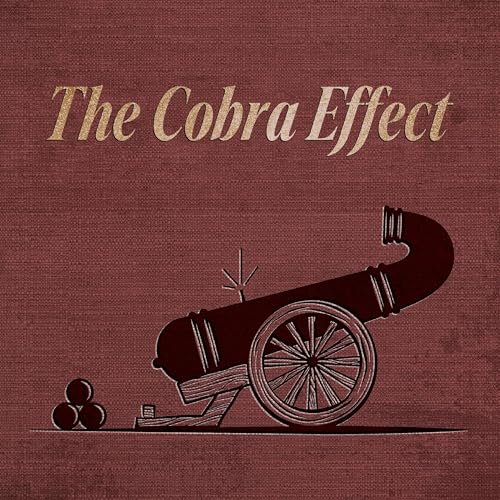In this episode, we first travel more than 100 years to the city of Delhi, in India.
The British colonial government decided to eliminate the overpopulation of cobras slithering around and put a bounty on each of them. The economic incentive initially worked well. However, the authorities did not foresee other subsequent events... Based on this story, in 2002, the German economist Horst Siebert coined the term “cobra effect” to describe cases of unintended consequences when the proposed solution backfires, making the problem worse. Hence, the title of this podcast!
Today, we will also discuss two other cases of "cobra effects" in Vietnam and Brazil related to rats.
These examples illustrate how unintended consequences transform good intentions into bad policies. From ancient Mesopotamia to current world events, The Cobra Effect Podcast explores the unintended consequences of government policies, including taxation, price and wage controls, foreign aid, collectivization, environmental issues, and more. Four millennia of history on all continents demonstrate that we repeat the mistakes of the past when judging ideas by intentions rather than results.
Sources:
1- Cobras
https://www.amazon.com/Kobra-Effekt-Irrwege-Wirtschaftspolitik-vermeidet/dp/3421056781
https://fee.org/articles/the-cobra-effect-lessons-in-unintended-consequences/
https://freakonomics.com/podcast/the-cobra-effect-2/
2- Rats in Vietnam
https://www.hanoivietnam.fr/le-massacre-des-rats-de-hanoi-en-1902/
https://madeinchinajournal.com/2020/08/20/the-great-hanoi-rat-hunt/
https://www.jstor.org/stable/41299413?typeAccessWorkflow=login
https://www.jstor.org/stable/41938159?typeAccessWorkflow=login
3- Rats in Brazil
https://revistapesquisa.fapesp.br/en/war-on-the-plague/
https://agenciabrasil.ebc.com.br/en/https%3A//agenciabrasil.ebc.com.br/en/node/1474734
https://oswaldocruz.fiocruz.br/index.php/en/biography/scientific-career/general-directorate-of-public-health/the-campaign-against-the-bubonic-plague
Bastiat’s essay: https://oll.libertyfund.org/page/wswns
Support the show
Thank you for listening. For additional information and social media links, you can visit https://www.thecobraeffectpodcast.com
You can support the show on Buy Me a Coffee or become a monthly member. Links on the website. You help me to cover my costs, and your contribution keeps this project going.
Feel free to reach out via social media or email. The email address is contact@thecobraeffectpodcast.com
I would appreciate hearing your questions, comments, or suggestions for future topics. See you in two weeks for another episode of The Cobra Effect Podcast.
 44 mins
44 mins 30 mins
30 mins 22 mins
22 mins 16 mins
16 mins 30 mins
30 mins 10 mins
10 mins
